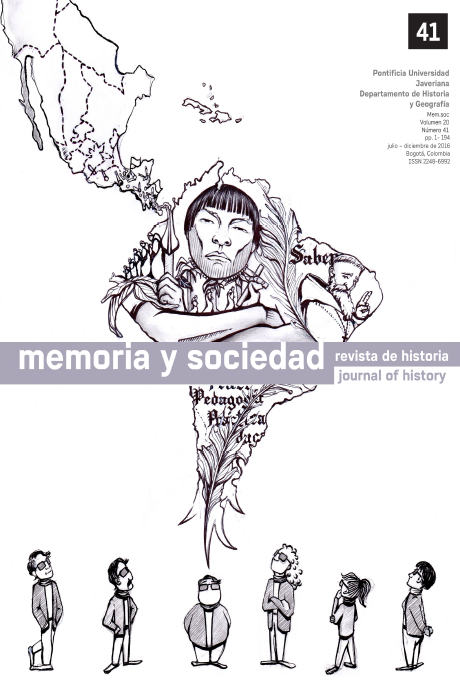Abstract
This article proposes an interpretation of how the doctrine of Miguel Antonio Caro, parti- cularly his conceptions regarding history, progress, and order, gave rise to a way of thinking about language as oscillating between two broad tendencies: the old and the new, or the classic and the modern. The dynamics of this conceptual «pendulum» are analyzed in respect to the language politics developed by several members of the Colombian Academy of Language - Michel de Certeau, Dominique Ju- lia and Jacques Revel concerning a definitive linguistic body of knowledge and the role of the same in the comprehension of the national language and the treatment of the existing pa- tois —dialects— in the nation. The central argument is that the very tension that arose from the defense of a traditionalist philosophy as well as the adoption of elements of a scientific knowledge concerning language both per- mitted the Academy to establish its particular manner of advancing in civilizing and consolidating a modern Nation-State.
The journal Memoria y Sociedad is registered under a Creative Commons Attribution 4.0 International Public License. Thus, this work may be reproduced, distributed, and publicly shared in digital format, as long as the names of the authors and Pontificia Universidad Javeriana are acknowledged. Others are allowed to quote, adapt, transform, auto-archive, republish, and create based on this material, for any purpose (even commercial ones), provided the authorship is duly acknowledged, a link to the original work is provided, and it is specified if changes have been made. Pontificia Universidad Javeriana does not hold the rights of published works and the authors are solely responsible for the contents of their works; they keep the moral, intellectual, privacy, and publicity rights.
Approving the intervention of the work (review, copy-editing, translation, layout) and the following outreach, are granted through an use license and not through an assignment of rights. This means the journal and Pontificia Universidad Javeriana cannot be held responsible for any ethical malpractice by the authors. As a consequence of the protection granted by the use license, the journal is not required to publish recantations or modify information already published, unless the errata stems from the editorial management process. Publishing contents in this journal does not generate royalties for contributors.

